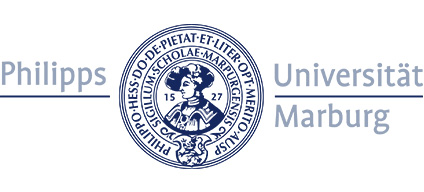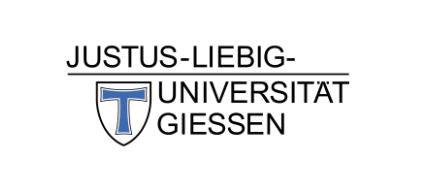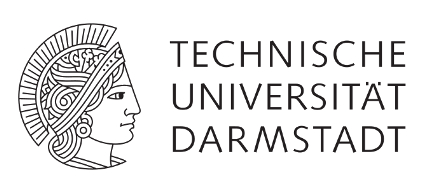02.02.2024 Between stability and adaptation: How humans respond to changes
The cluster project “The Adaptive Mind” clears the first hurdle in its application for Cluster of Excellence funding

The research project "The Adaptive Mind" (TAM), in which TU Darmstadt is participating, was successful in the first round of the Excellence Strategy. The researchers are now able to submit a full application – and hope that they will ultimately be awarded a prestigious Cluster of Excellence grant. The project aims to understand how the human mind is able to adapt.
Humans have an unparalleled ability to handle changes: Our eyes can adapt to the brightness of our surroundings, irrespective of whether we are standing on the beach at midday or enjoying a moonless night, we don’t forget how to ride a bike even though our bodies constantly change throughout our lives and we are able to handle different liquids from water all the way to honey. To this day, this ability to adapt is still out of the reach for robots. Humans sometimes respond to such changes in conditions by remaining stable and other times by adapting to them. This requires a great deal of flexibility so that we can survive in a dynamic and uncertain world.
But how does the human mind decide when to use which strategy? What is the balance between stability and adaptation? And what happens when this adaptation process fails? Researchers from different disciplines are investigating these and other questions in the cluster project “The Adaptive Mind”. Under the leadership of the Justus Liebig University Gießen, the participants in this project not only include TU Darmstadt but also the Philipps University Marburg, Goethe University Frankfurt and the Frankfurt Institute for Advanced Studies (FIAS).
"Our strong team of scientists is already contributing to a field of research that promises to revolutionise how we understand human perception, thought, decision making, actions and learning using computational models."
Psychology professor Constantin Rothkopf, TAM spokesperson at TU Darmstadt, is absolutely delighted that the German Research Foundation (DFG) has invited TAM to submit a full application for funding as a Cluster of Excellence. "We have high hopes that we will be able to turn our already hugely successful joint project into a Cluster of Excellence in the future" he emphasised. "Our strong team of scientists is already contributing to a field of research that promises to revolutionise how we understand human perception, thought, decision making, actions and learning using computational models."
The TAM project aims to decode the universal principles behind human adaptability. This topic is currently being investigated in many academic fields – not just in the areas of cognitive science, neuroscience and psychology but also in research on robots learning and the training of neural networks. This is why experts from the fields of artificial intelligence, machine learning and robotics are also involved in the cluster project.
Human adaptability, mental health and safe AI: Theses are the core themes behind "The Adaptive Mind" and they have never been as relevant as they are today.
The findings from the project will be integrated into computer models that can imitate, predict and explain both the spectacular successes and also tragic failures of the human mind. This will have an impact, on the one hand, on basic research by enabling the development of algorithms for behavioural adaptation that could also flow into the development of safe AI and robot technology, while it will enable us, on the other hand, to better understand deficits in adaptive behaviour that may influence our mental health. Professor Roland Fleming, TAM spokesperson at the University of Gießen, adds: "Human adaptability, mental health and safe AI: Theses are the core themes behind "The Adaptive Mind" and they have never been as relevant as they are today."
Researchers from the fields of cognitive science and artificial intelligence at TU Darmstadt are contributing their outstanding expertise to this project. TU Darmstadt is one of the few places where artificial intelligence and cognitive science are imagined, investigated and enacted together. These two highly topical and important fields of research have been developed in a responsible, strategic and sustainable way at TU Darmstadt. Some of the researchers involved in this scientific consortium can thus be found working in the Centre for Cognitive Science and the Hesse Center for Artificial Intelligence – hessian.ai. The State of Hesse has been funding a predecessor project since April 2021 and will provide total funding of 7.4 million euros over four years.
About the excellence strategy of the federal and state governments
To further strengthen the international competitiveness of research at German universities, the federal and state governments have established the Excellence Strategy as a funding programme. The key objective of the Excellence Strategy is to strengthen top-level research in areas that are internationally competitive, to institutionally strengthen German universities, and to advance the development of the German higher education system.
To this end, the Excellence Strategy comprises two separate but intertwined funding lines. The "Clusters of Excellence"funding line, coordinated by the German Research Foundation (Deutsche Forschungsgemeinschaft – DFG) provides project-based funding for internationally competitive research areas at German universities. The "Universities of Excellence" funding line, coordinated by the German Science and Humanities Council (Wissenschaftsrat – WR), is designed to fund institutional strategies that promise to strengthen universities as a whole and create outstanding framework conditions for excellent research.


